“A Man of My Word: How Wondrous Words and Wordplay Make Children’s Books Shine”
With the world turned topsy-turvy, the healing and comforting power of humor will help see us through. I hope that this guest post will provide a small measure of mirth and merriment, true tonic for these times.
As a lad, I developed a fascination with words—the bigger, the better. I began to collect them—and my collection, though not tangible like my shoeboxes full of baseball cards or my plastic dinosaur figurines—was just as highly prized. By the way, there is even a big word for big words. The word is “sesquipedalian,” and it literally means “one and a half feet long.” These are big words, after all.
My first big word was “antidisestablishmentarianism.” I took a special satisfaction in being able to spell this one at so tender an age. I could even define it. It meant “the movement against the people against the church.” While I never had occasion to use this gem in a sentence, I can recall spelling it aloud for my aunts and uncles. I would swell with pride as I nailed all twenty-eight letters. Everyone thought I was a genius. A boy wonder! But I knew better.
My next big find was one that most of you probably know: “supercalifragilisticexpialidocious”—even though the sound of it is something quite atrocious. If you say it loud enough, you’ll always sound precocious. Supercalifragilisticexpialidocious. It is, of course, from Mary Poppins and it means “absolutely fantastic.” I loved saying this word. When I hit a three-sewer home run at stickball, it was supercalifragilisticexpialidocious. Yes, I loved saying this word . . . until I found out that it was made up for the show. It didn’t really exist. So that’s why I couldn’t find it in any dictionaries, try as I might! Why did the songwriters have to make up a word? Wasn’t this cheating? I mean, couldn’t they have written a song about, say, antidisestablishmentarianism? I can hear it: “Antidisestablishmentarianism—even though the sound of it renews our humanism.” Hmm.
My next marvel was the improbable “humuhumunukunukuapua’a,” a name that is bigger than the critter itself. It’s a very colorful triggerfish, found along the coral reefs of Hawaii. Now, because the Hawaiian alphabet has only twelve letters, the words sometimes get a mite repetitive. But this one was truly absurd. I encountered it while watching an episode of my favorite boyhood show—The Little Rascals. Our Gang competes in a radio audition against several performers, including a crooner singing “I Want to Go Back to My Little Grass Shack,” complete with pint-size hula girls. The song featured the lyric “where the humuhumunukunukuapua’a go swimming by.” Imagine my breathless excitement when I actually found this word in an unabridged dictionary, though it took several attempts to locate it.
Then I made the acquaintance of a forty-five-letter monster, “pneumonoultramicroscopicsilicovolcanoconiosis,” a lung disease caused by the inhalation of very fine silica particles. Now that’s a mouthful—I mean, a lungful. Can you imagine a doctor diagnosing it? The patient would surely die of terror before the doctor completed the diagnosis.
My next beaut was “floccinaucinihilipilification,” which means “estimating something as worthless.” It was the longest word in the Oxford English Dictionary until “pneumonoultramicroscopicsilicovolcanoconiosis” eclipsed it in the second edition. The first recorded use of this word was in 1741 in the sentence “I loved him for nothing so much as his floccinaucinihilipilification of money.” Indeed! And this corker of a word made it into the Congressional Record in 1999, when Senator Jesse Helms proclaimed his floccinaucinihilipilification of the Comprehensive Nuclear Test-Ban Treaty.
My love affair with words deepened dramatically when I stumbled upon a complete, ten-volume set of the Oxford Universal English Dictionary on Historical Principles in the incinerator room of my grandmother’s apartment building in Brooklyn. Someone had discarded this precious trove. Imagine that! My Old World grandmother couldn’t quite understand why I refused to give her one measly volume, sharing the bounty. After all, I had ten! It was divided into A–Bro, Bro–Dec, Dec–Fit . . . and, of course, it was inseparable—and so was I, with it. How I treasured my dictionary! I took to reading it nightly, and I proudly, perhaps insufferably, flaunted the new additions to my vocabulary.
So it was only natural that I would pour my lifelong love of words and wordplay into my children’s books. I’ve made a point of introducing unfamiliar, though kid-friendly, words to young readers while also giving them a spoonful of wordplay. My brand-new children’s book, The True Story of Zippy Chippy: The Little Horse That Couldn’t, a heart-tugging, inspiring picture-book biography of a fabled racehorse, lovingly illustrated by Dave Szalay, enjoys a rich and rewarding vocabulary, with a large dollop of wordplay. Among the marvelous words you’ll find are “wafting,” “hapless,” “rambunctious,” “shenanigans,” “emblazoned,” “nuzzled,” “ballyhooed,” “heyday,” “vanquishing,” “zaniest,” and more, colorful words not often found in a picture book. These are words that are fun to say and they enrich the story of the beloved horse who ran 100 races and lost every one. And delicious, understated wordplay abounds. “Zippy bridled at the change,” “his losses continued to mount,” “to add a little horsepower,” “a running joke” are but a few examples.
Here are a few pages:
The inimitable Dr. Seuss coined scores of fantastic words, from “bar-ba-loots” to “zummers.” He, of course, gave us the term “grinch” and is credited with the first use of the word “nerd,” a creature from If I Ran the Zoo. His antic use of language makes his books so unforgettable. They resonate with parent and child alike, generation after generation. And they unleash readers.
I’m a great exponent of stretching youngsters’ vocabularies. They can puzzle out unfamiliar words within the story’s context. And if they’re flummoxed, they can always turn to a dictionary for assistance. My hope is that they will make these words their own as they develop a deep appreciation for language’s playful possibilities. The more words we know, the better we can communicate, the sharper our thinking will be, and the more equipped we’ll be for life’s challenges.
I regularly hear from educators and librarians about how my books never tarry on the shelves and how they show students how much fun a book can be. A great deal of this has to do with their exuberant use of language. Also, I’ve been blessed to have such talented illustrators with complementary senses of humor.
My “number two” picture book, Poopendous!, one of my five picture books in verse, has a portmanteau-word title that’s immensely fun to say. It’s a book that revels in humor and wordplay and is filled with joyful facts. I love asking students at my school appearances if the word “poopendous” can be found in the dictionary. And if not, how could I possibly use it for my title. Their responses never fail to delight me. The introductory couplet sets the stage for the inspired wackiness to come:
I’m Professor Pip Poopdeck. Welcome aboard!
We’re exploring a substance that most have ignored.
An icky-poo subject folks don’t care to visit.
Quite putrid and shocking and horrid . . . or is it?
Here are a few images from this fun book:
In Peter Panda Melts Down!, my first storybook, we meet a tantrum-tossing cub whose mama is struggling to avoid the mother of all meltdowns herself. I experimented with the use of a refrain, and surprise variations along the way. The refrain has an interactive element that pulls youngsters into the story. And it has some delightful, fanciful words as well. Here are a couple images:
Belches, Burps, and Farts—Oh My!, whose title pays homage to a hilarious song from The Wizard of Oz, has more than its share of verbal merriment, as well as a panoply of incredible facts, all in a verse format. What sound do overly gassy cows make when they explode? Why, “cow-boom!” of course. And I was thrilled to work the word “nincompoops” into a couplet. One of my choicest nuggets can be found in this verse:
Can you belch your ABCs?
Demonstrate your ex-burp-tise!
A very recent picture book, What’s Afoot! Your Complete, Offbeat Guide to Feet, published by a spanking-new startup publisher, boasts a punny title and a footload of humor. And like Belches, it features a two-page fact spread filled with amazing information. It begins with this amusing, pun-packed passage:
Dip your toes in.
Let’s explore
the world of feet.
Yes, FEET galore!
Your knowledge soon will be complete
when you . . .
get in step with all these feet!
Here is a sampling:
What I like to refer to as my first “mature” work, The Butt Book, which was modeled after Dr. Seuss’s The Foot Book, The Eye Book, and The Tooth Book, is a tongue-in-cheeks tribute to the posterior. It also has challenging words like “juts,” “zeal,” and the Shakespearean “perchance,” all, though, easily understood in context. Since we don’t have that many j and z words, I’m happy to introduce one of each, little words yet big ones. I recall tussling with my editor over including some possibly unfamiliar words. I dug in my heels and she eventually softened. While The Butt Book is teeming with humor, I’m most proud of the stirring finale, which culminates in this fun farewell flurry:
So respect your butt and listen, folks.
It must not be the butt of jokes.
Bottoms up! Hip, hip, hooray!
Our useful butts are here to stay.
Don’t undercut your butt, my friend.
Your butt will thank you in . . . The End.
Here a few select spreads:
Thank you, Unleashing Readers, for the opportunity to share a word or two about me and my books! It’s been quite supercalifragilisticexpialidocious!
Illustrated by Dave Szalay
Published February 25th, 2020 by NorthSouth Books
About the Book: A true story about the famed racehorse who lost every race but won everyone’s heart.
The bell rings and they’re off! Zippy the racehorse—descended from legends—is destined for glory, but when the other horses bolt from the gate . . . Zippy stands still. When people try to pet him . . . he bites their hats and escapes from his stall. What’s an owner to do? Keep on trying! After all, Zippy has become part of Felix’s family—and a close friend of his little daughter. And after 100 straight losses, Zippy shows everyone that—win, lose, or draw—it takes guts to compete and that you can lose and lose and still be a winner.
About the Author: Artie Bennett is an executive copy editor by day and a writer by night. He is the author of an inspiring picture-book biography of a hapless, though beloved, horse: The True Story of Zippy Chippy: The Little Horse That Couldn’t. He is also the author of a quintet of hilarious rhyming picture books: The Butt Book, his first “mature” work and winner of the Reuben Award; Poopendous!, his “number two” picture book; Peter Panda Melts Down!, an adorable departure from derrières and doo; the explosively funny Belches, Burps, and Farts—Oh My!; and his latest, What’s Afoot! Your Complete, Offbeat Guide to Feet, which is guaranteed to knock your socks off. And if that’s not enough, he’s the author of two riotous joke and riddle books: The Universe’s Greatest Dinosaur Jokes and Pre-Hysteric Puns and The Universe’s Greatest School Jokes and Rip-Roaring Riddles.
He and his wife, Leah, live deep in the bowels of Brooklyn, New York, where he spends his time moving his car to satisfy the rigorous demands of alternate-side-of-the-street parking and shaking his fist at his neighbors. The Show Me Librarian says: “Bennett’s use of rhyme is excellent; his stanzas flow and exude joviality in a manner that few writers since Dr. Seuss have truly mastered. Simply put, these books are a joy.” The Huffington Post says: “It appears there is no topic Mr. Bennett can’t make funny and educational.” Visit ArtieBennett.com . . . before someone else does!
Thank you, Artie, for sharing all of this fun word play!
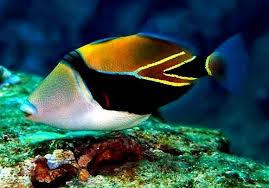
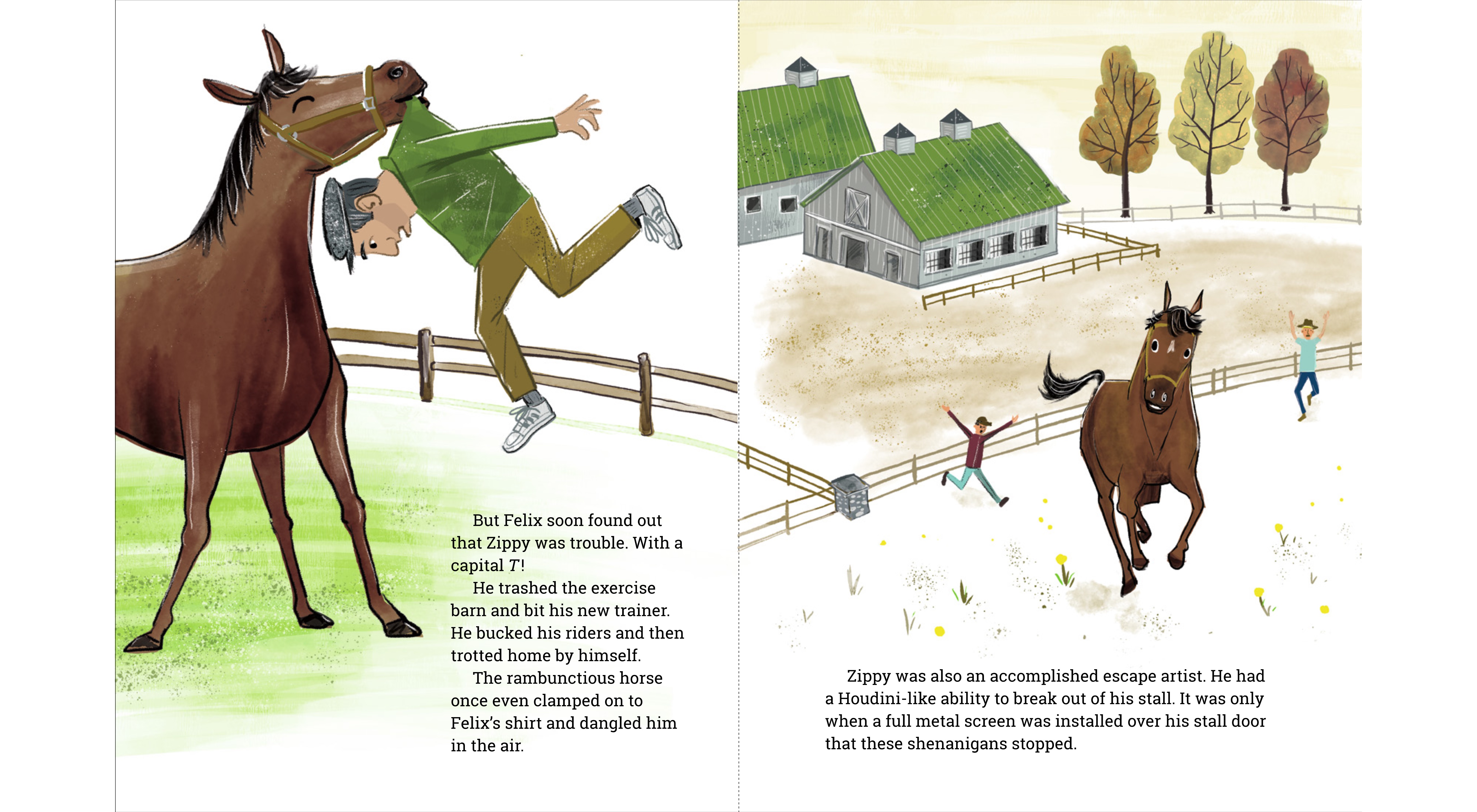
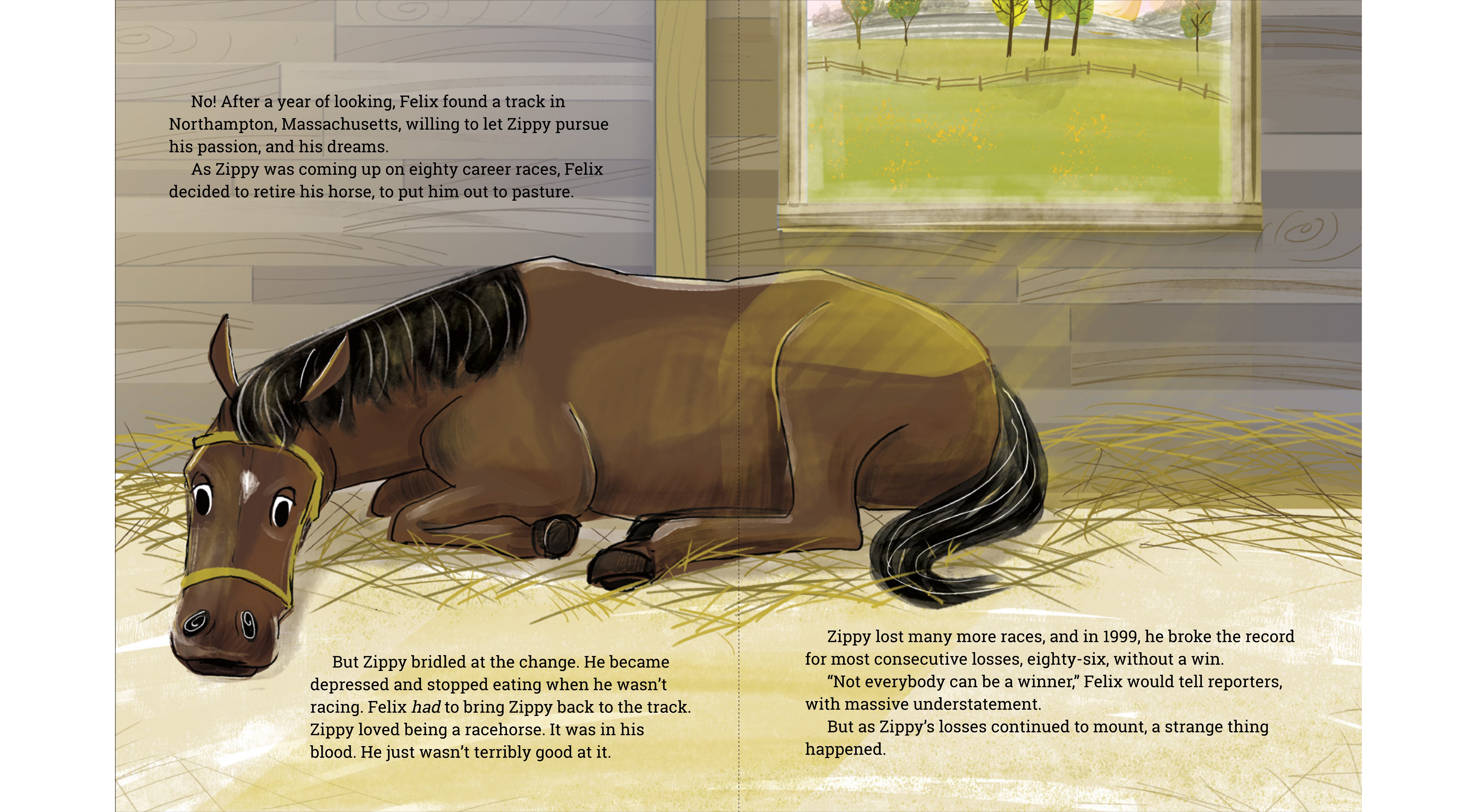
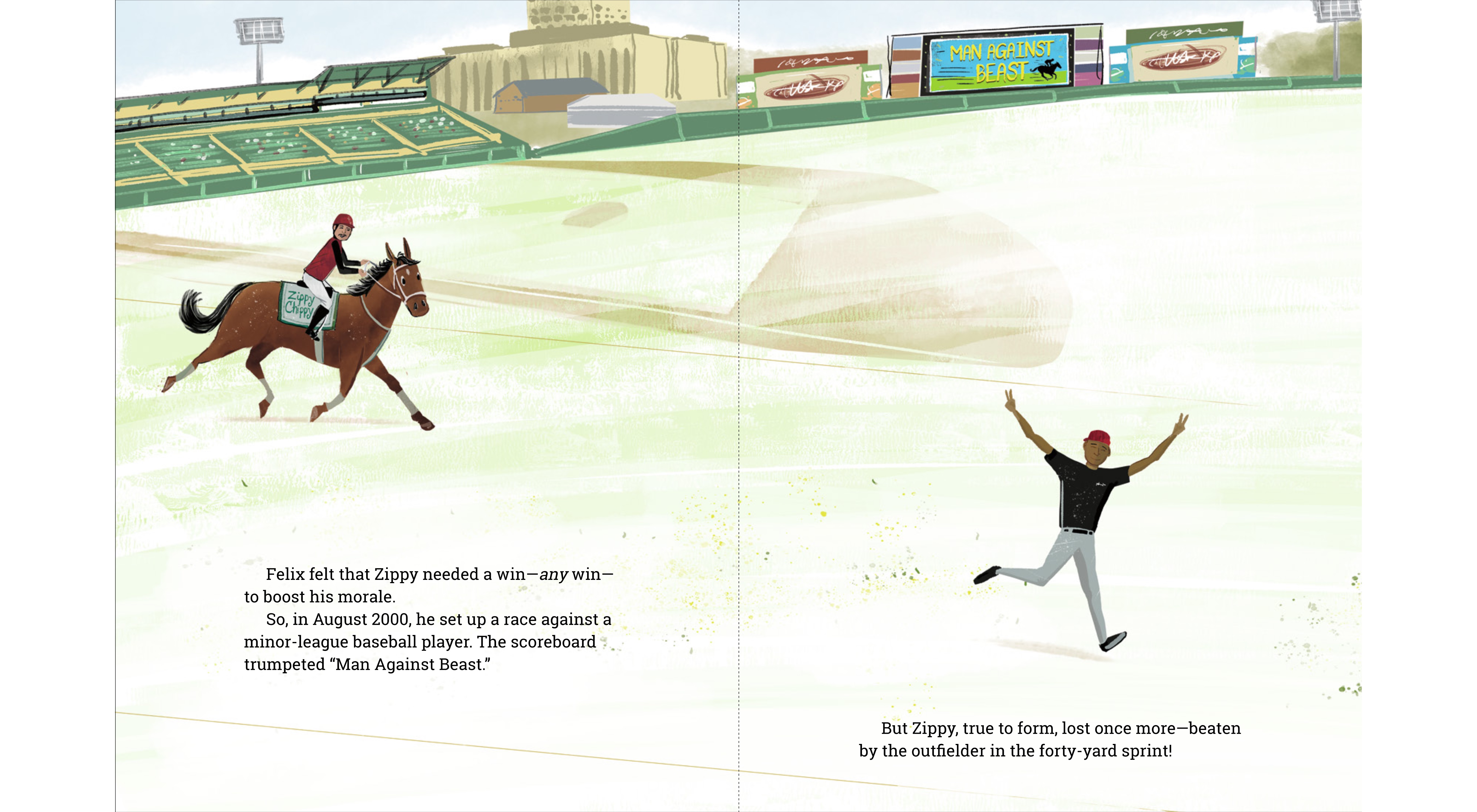
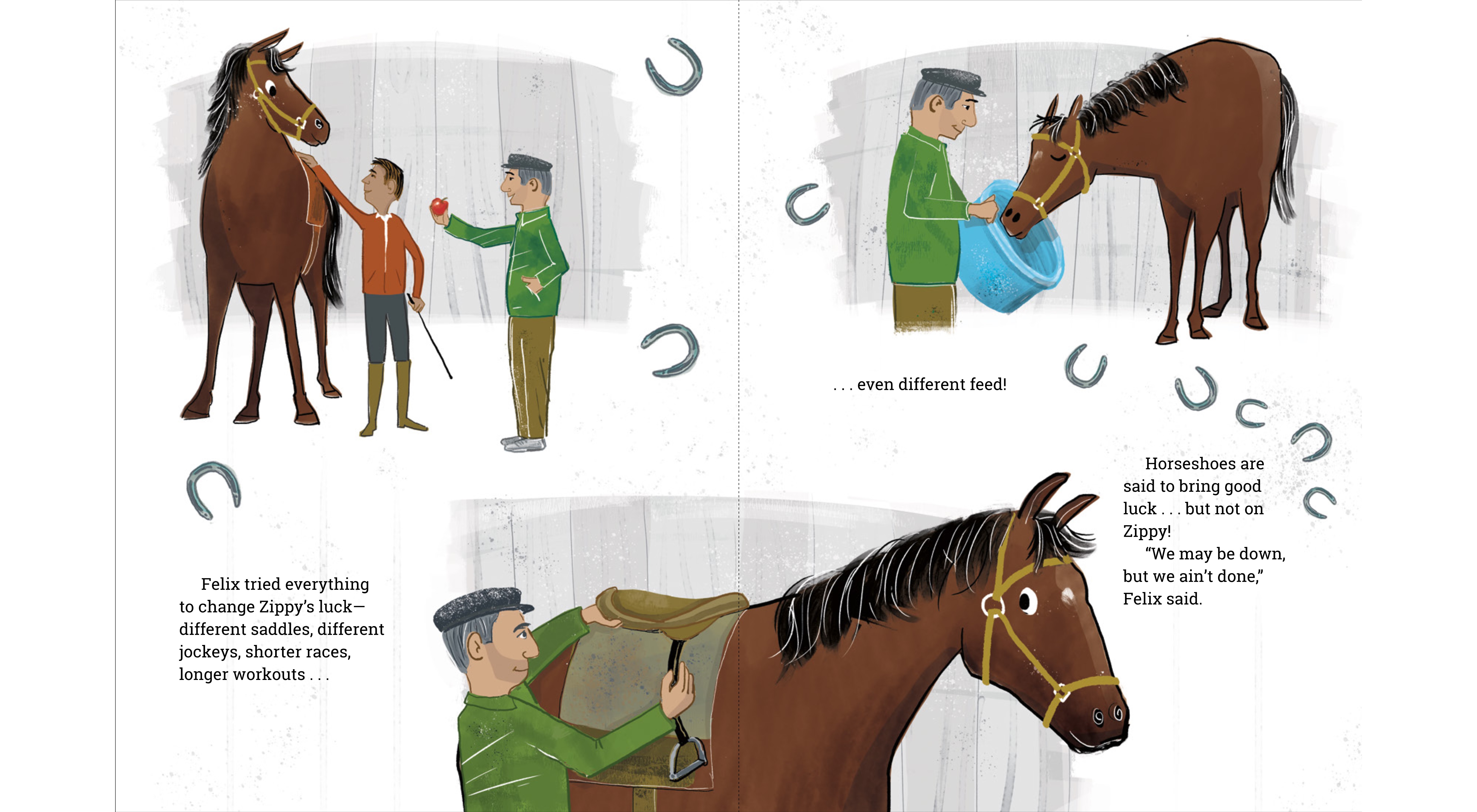
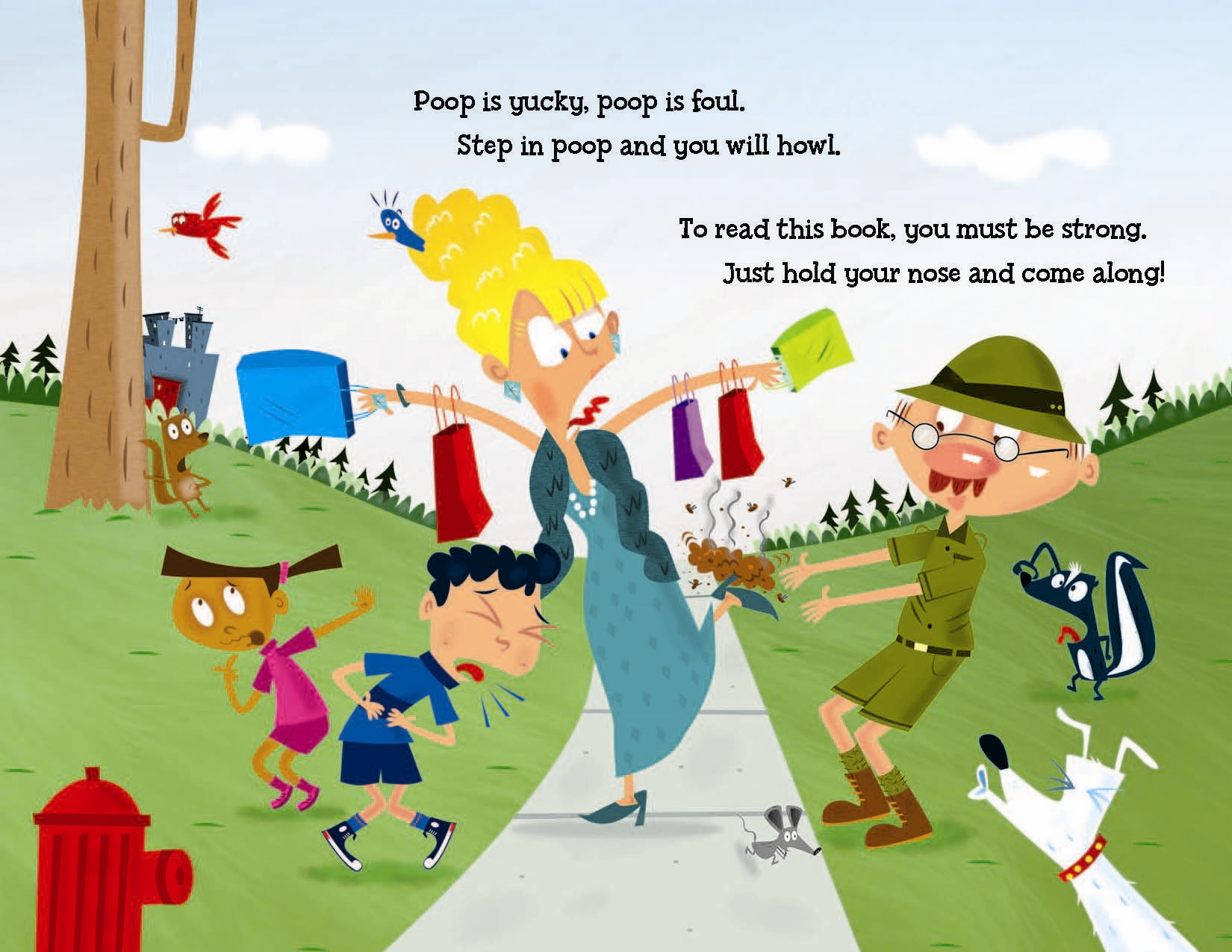
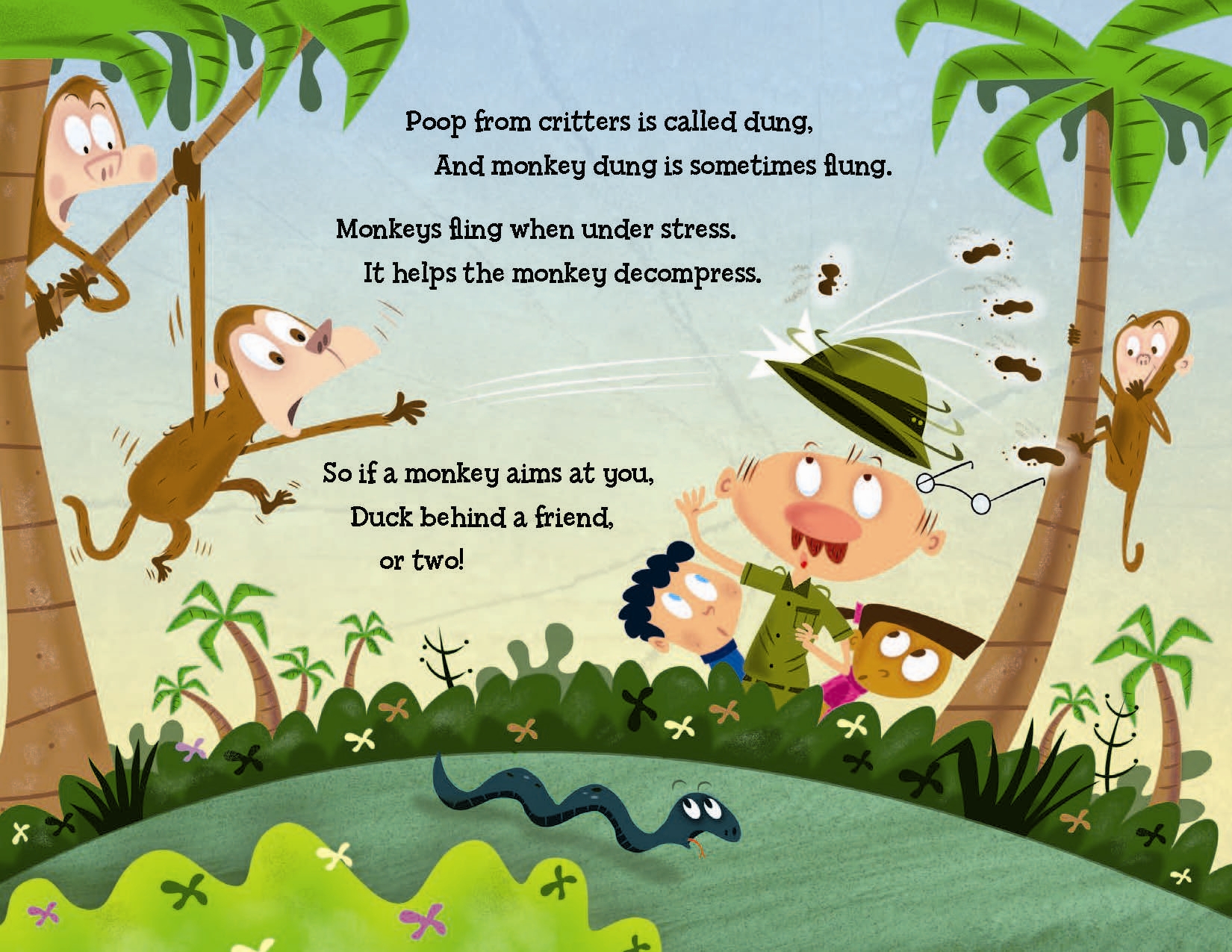
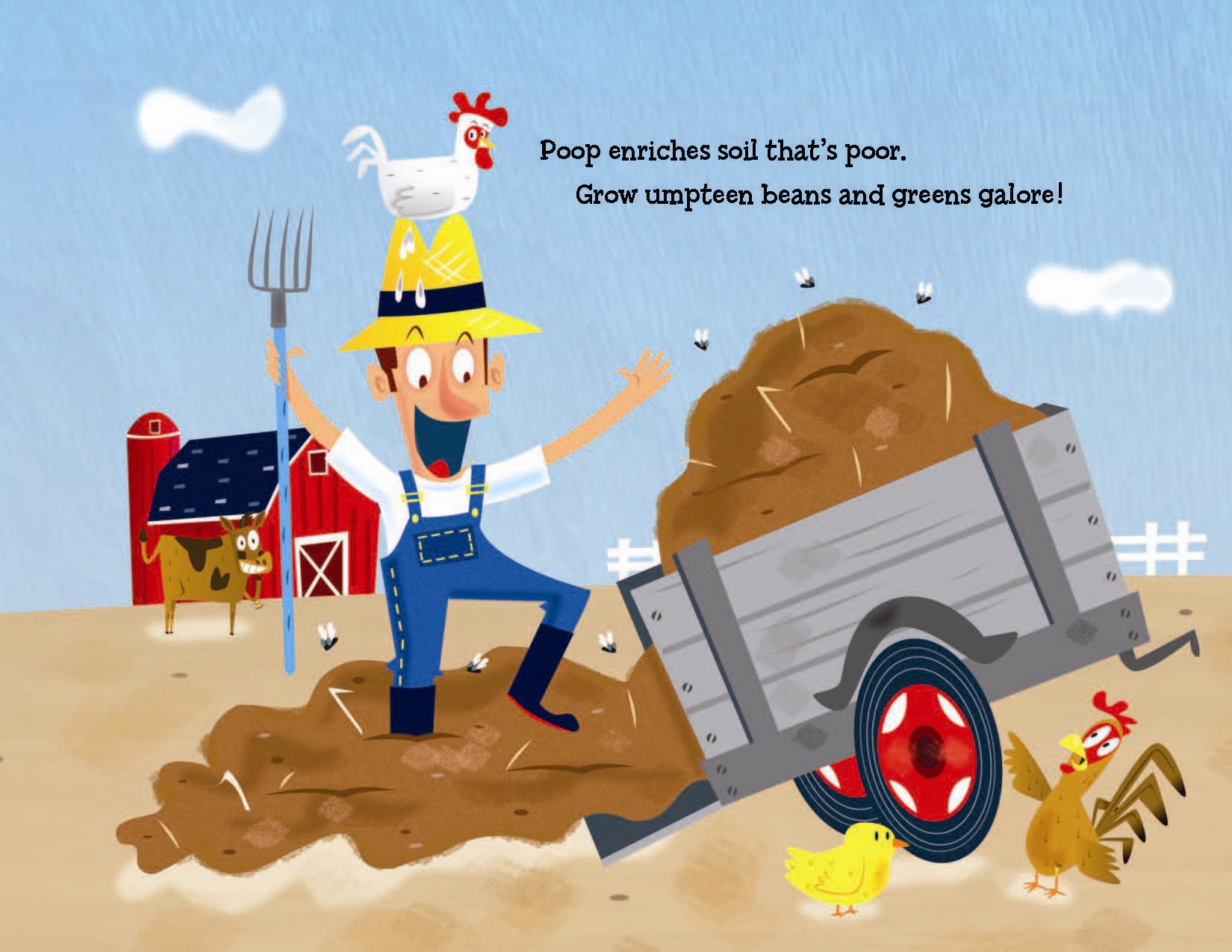
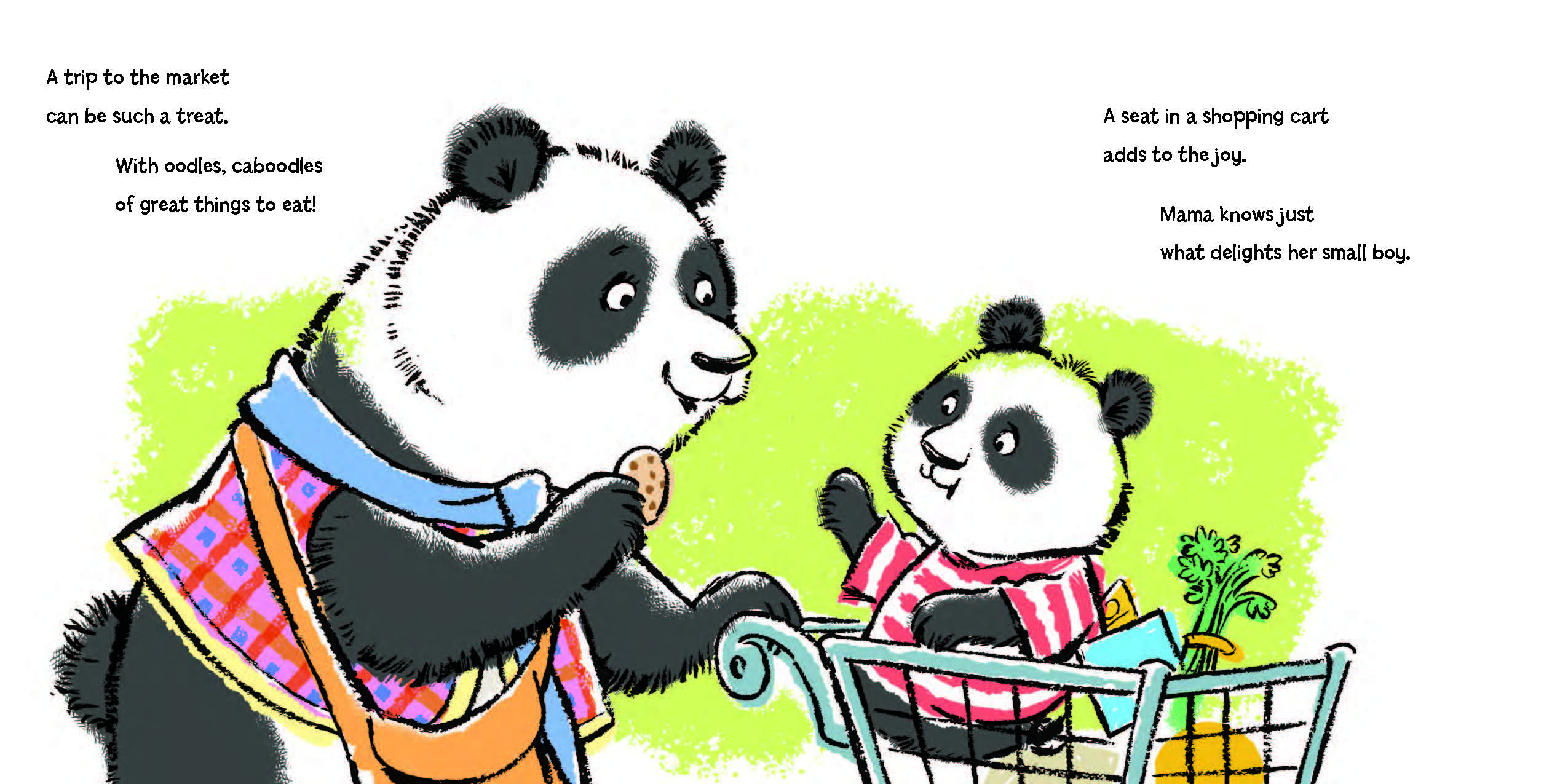

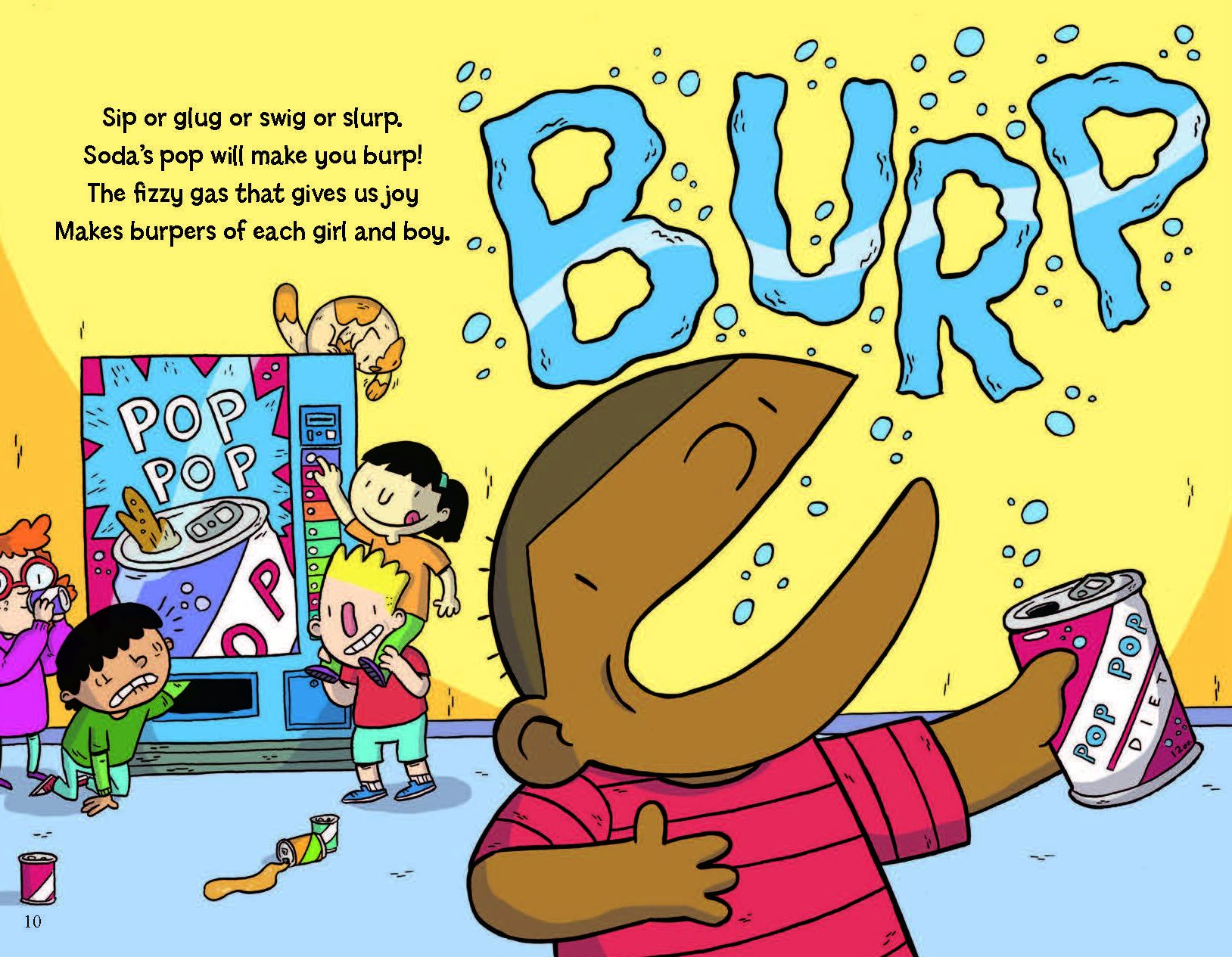
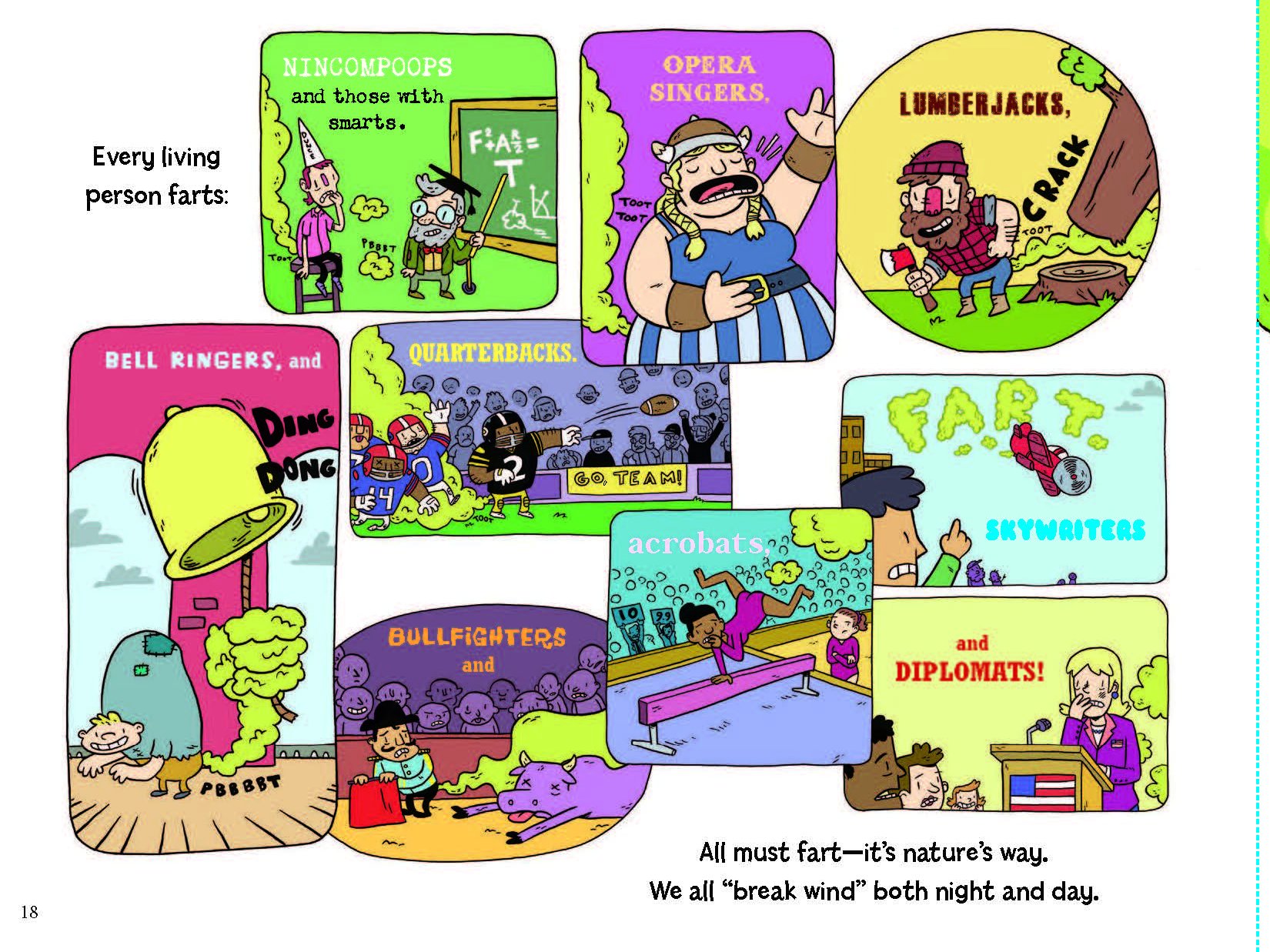
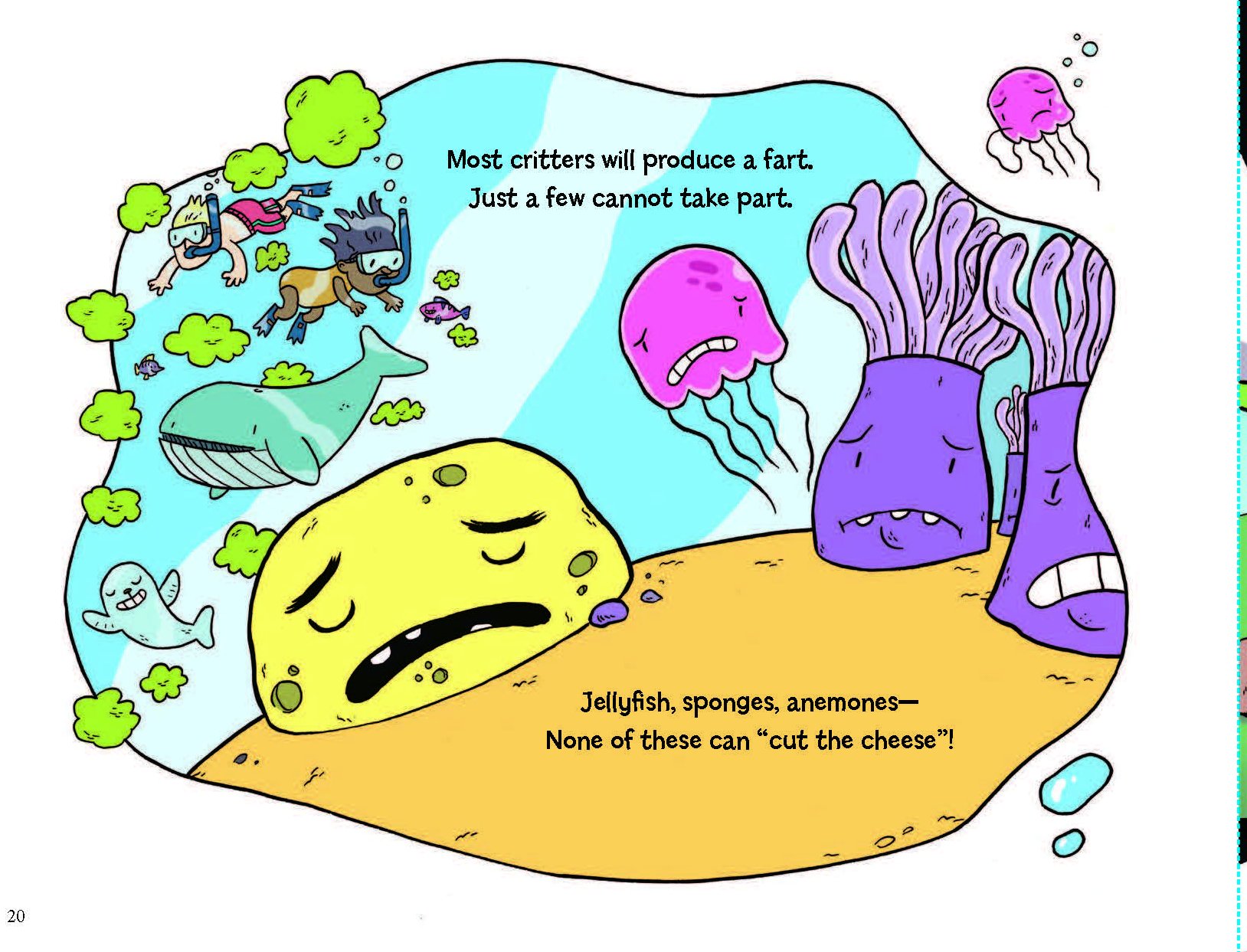
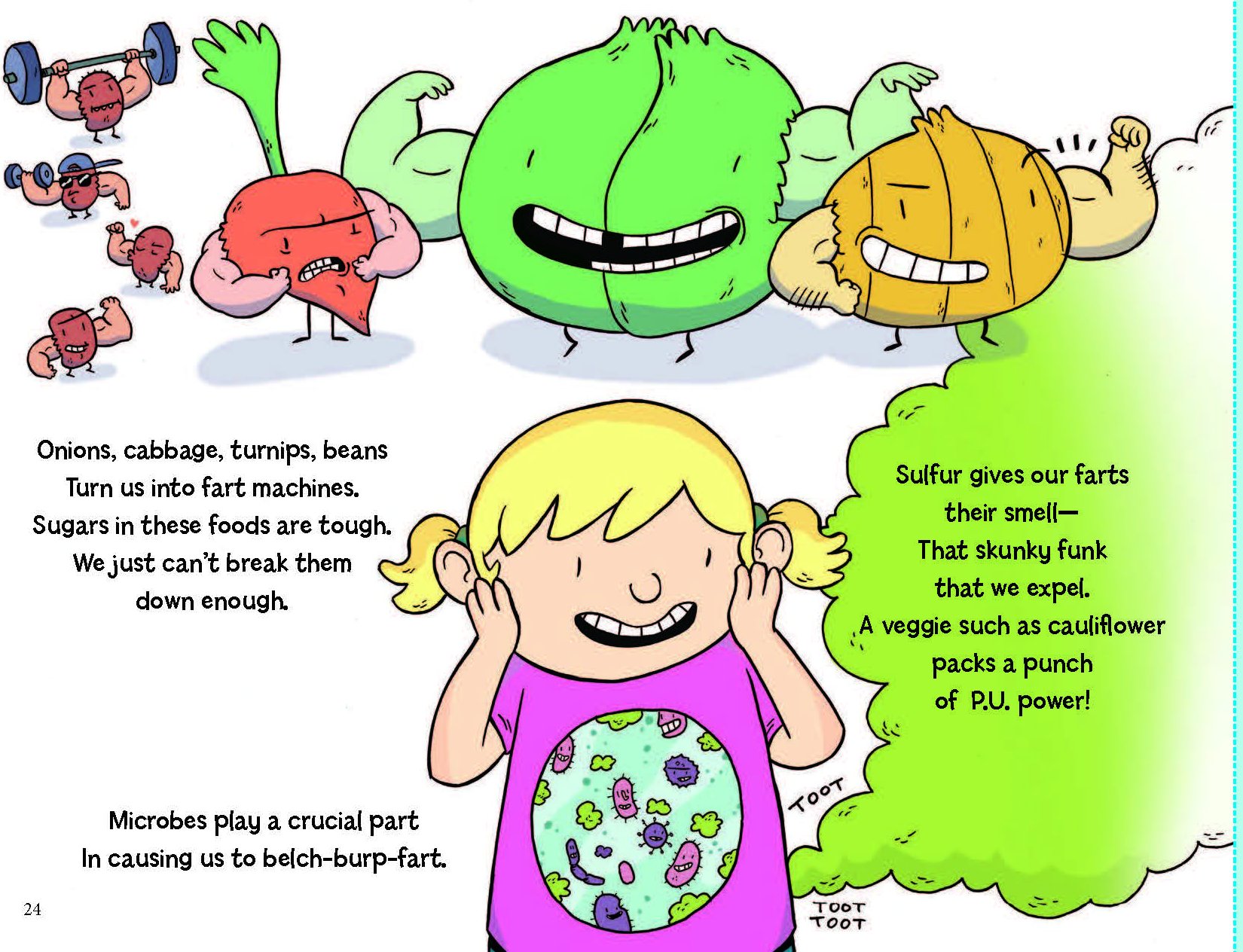
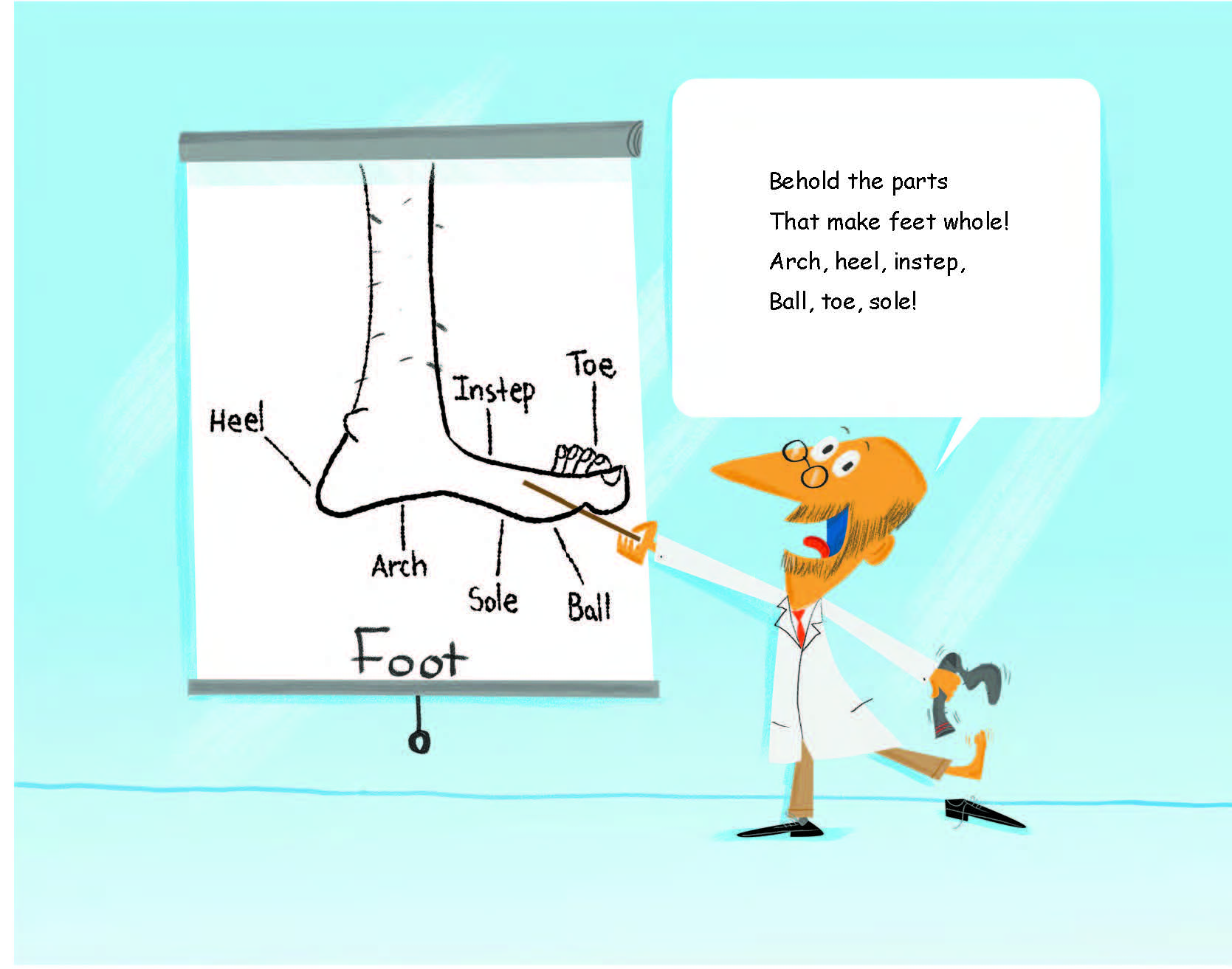
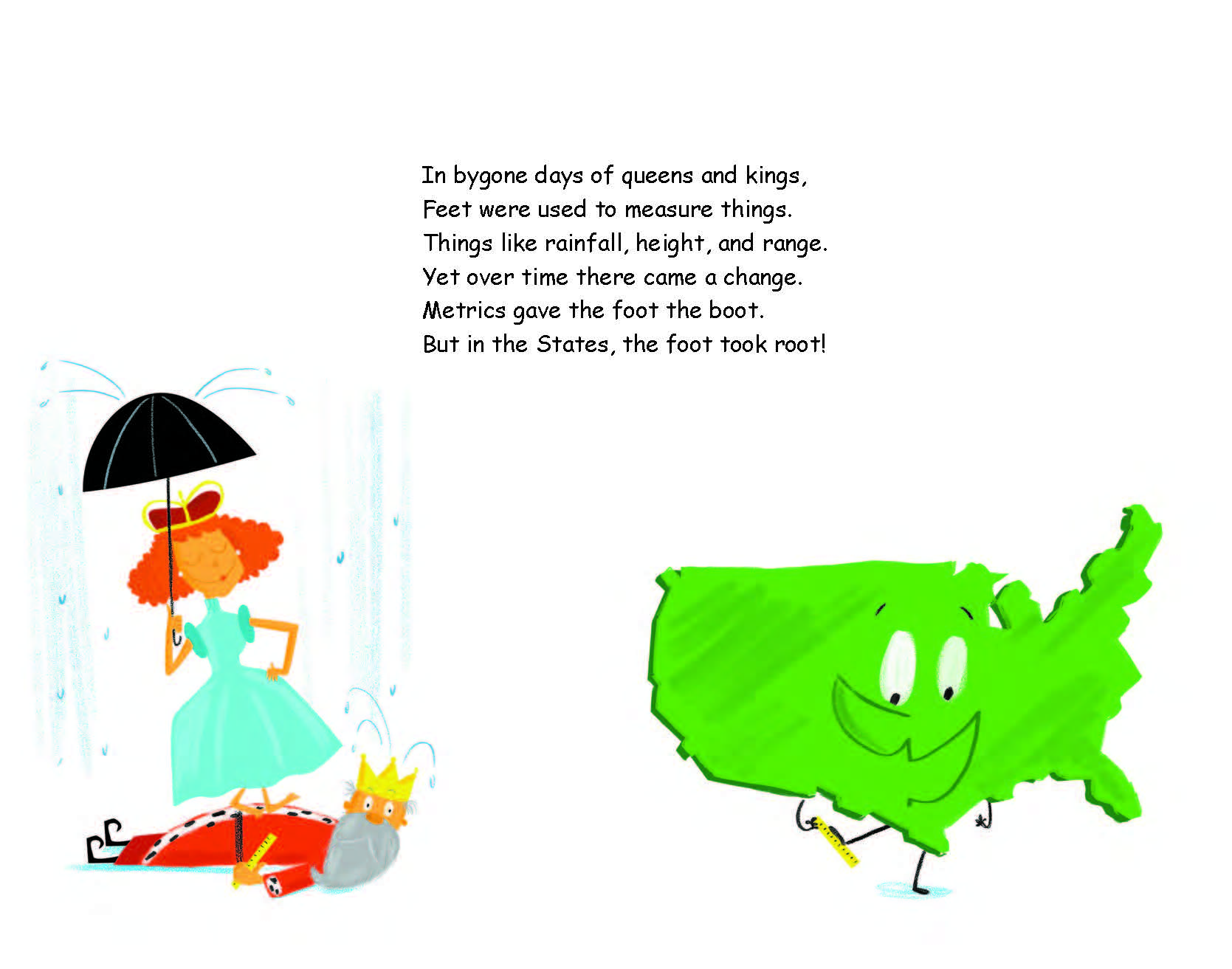
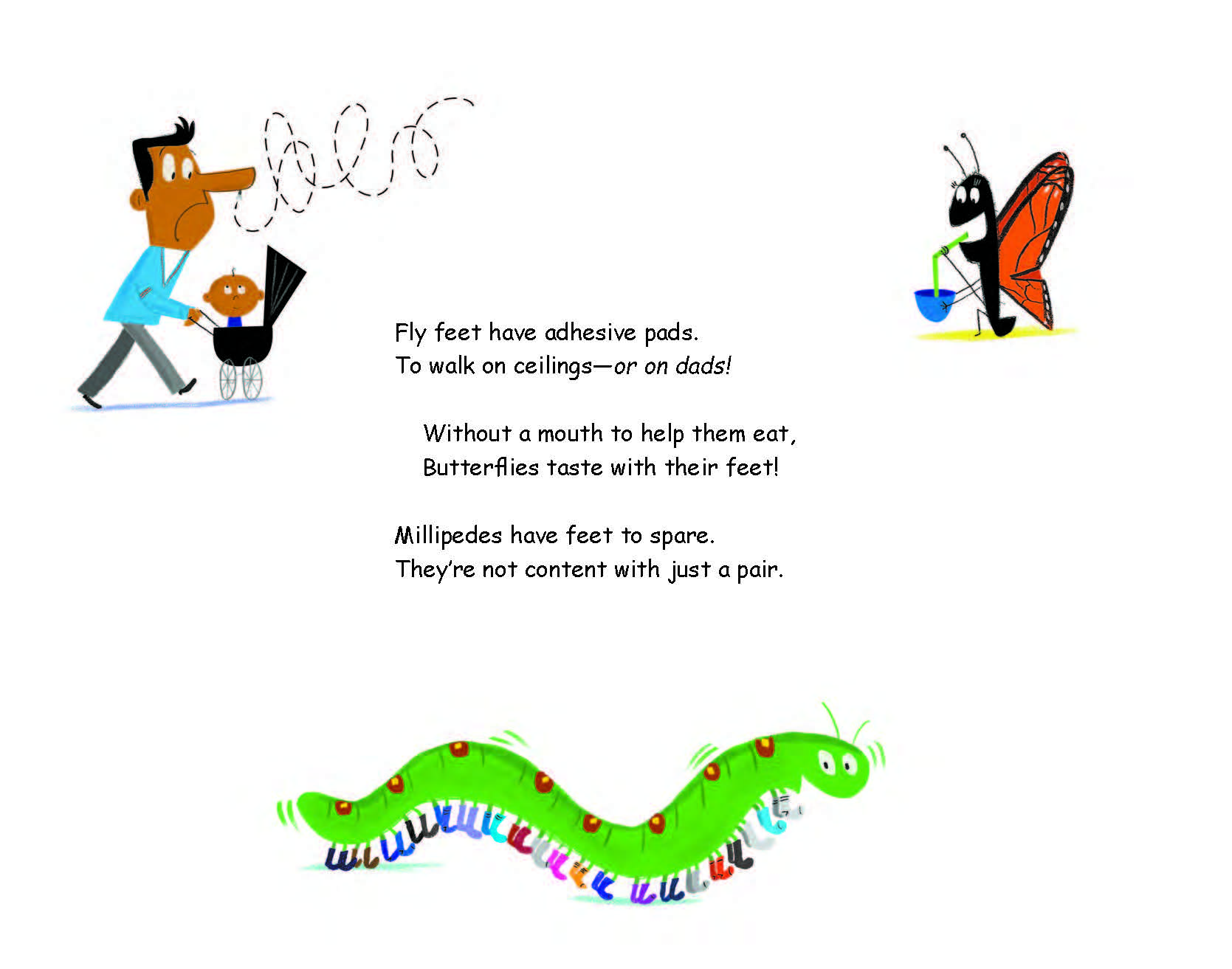
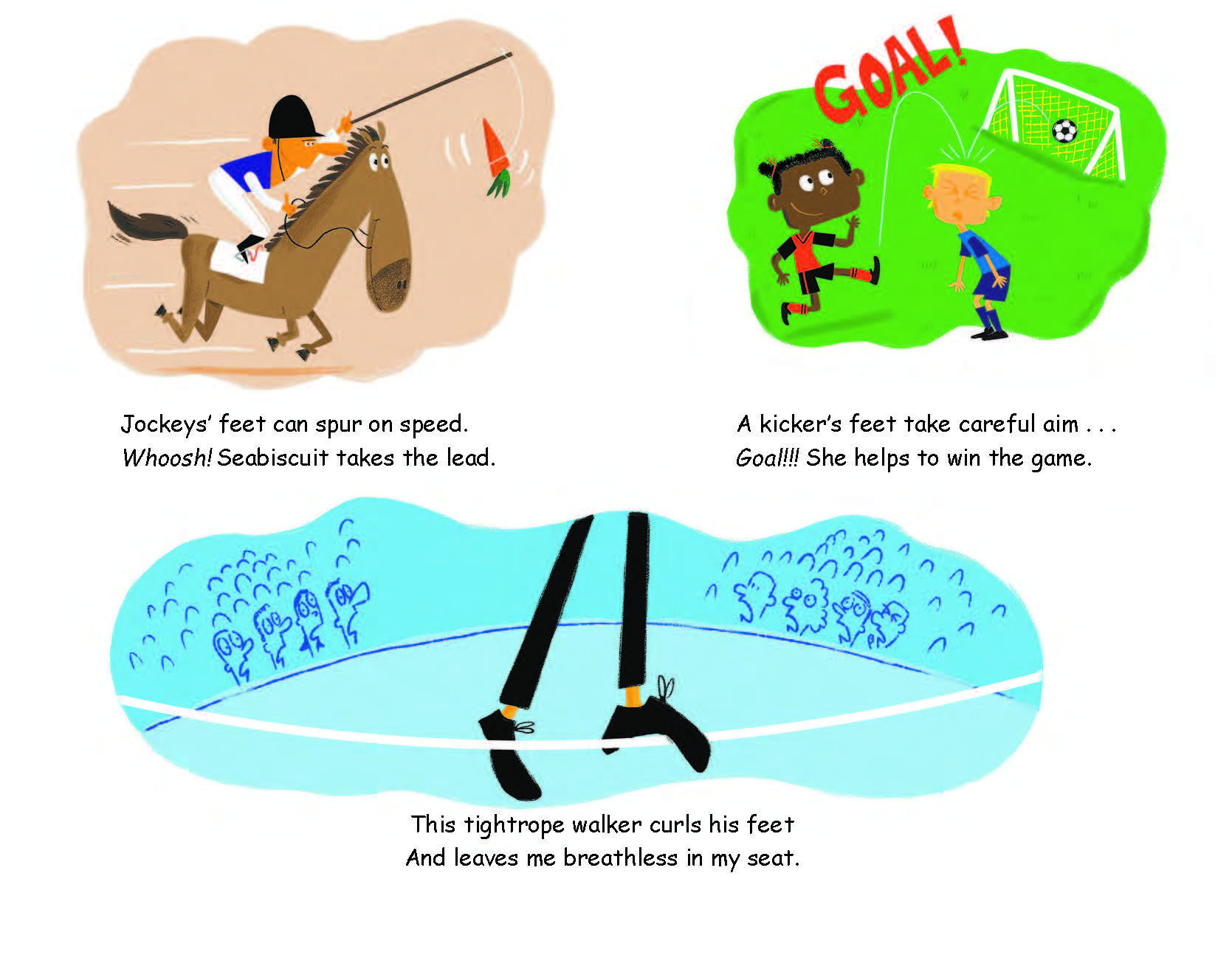
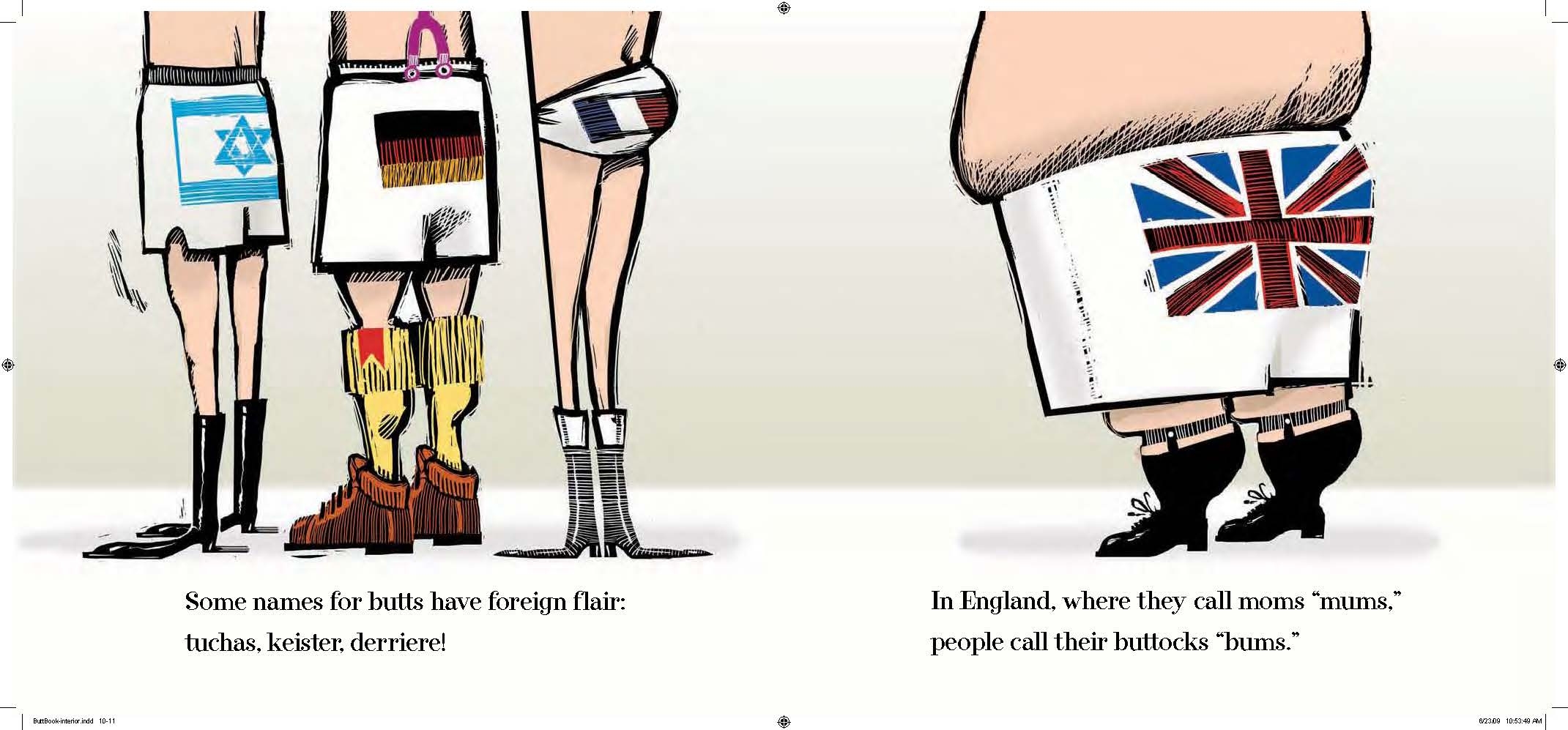
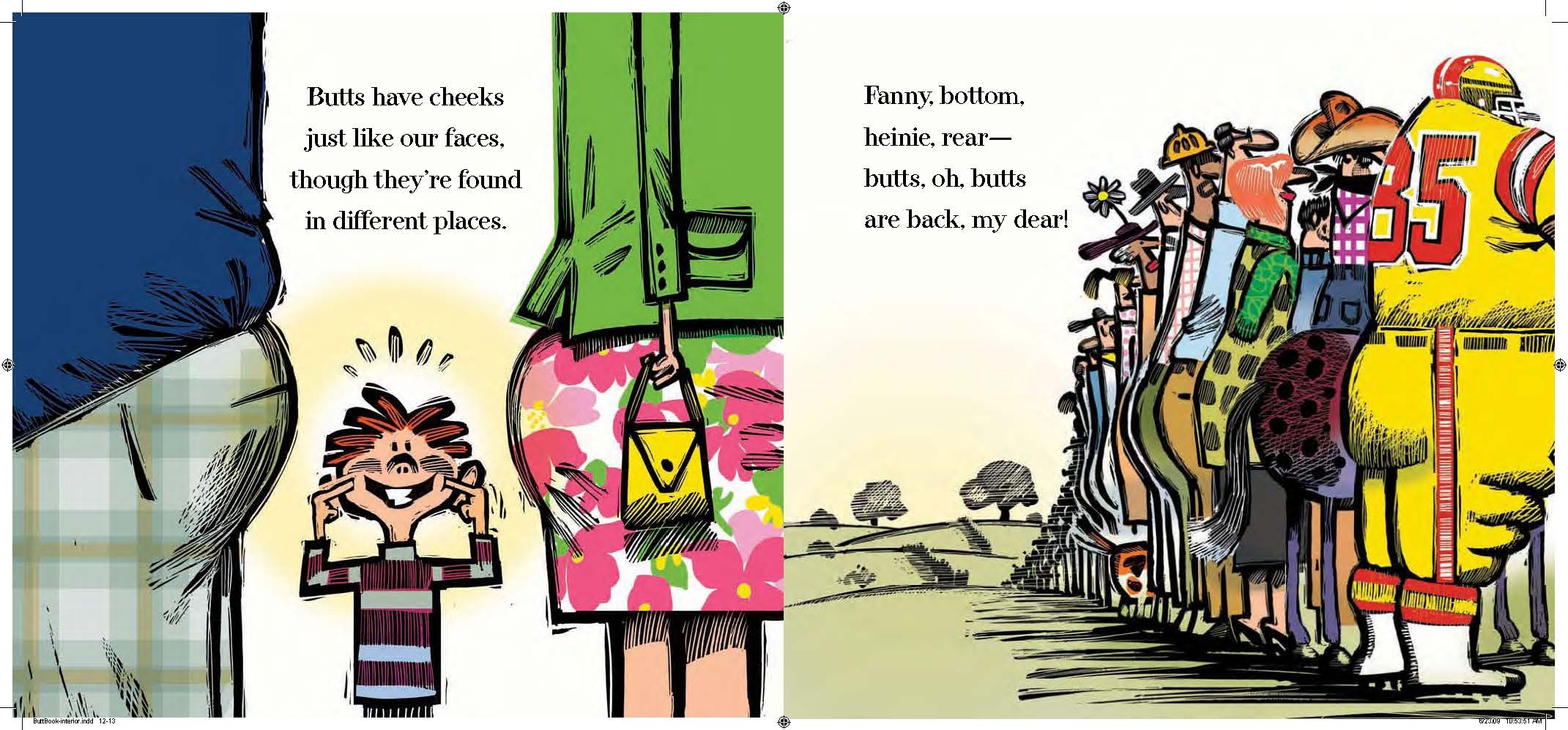
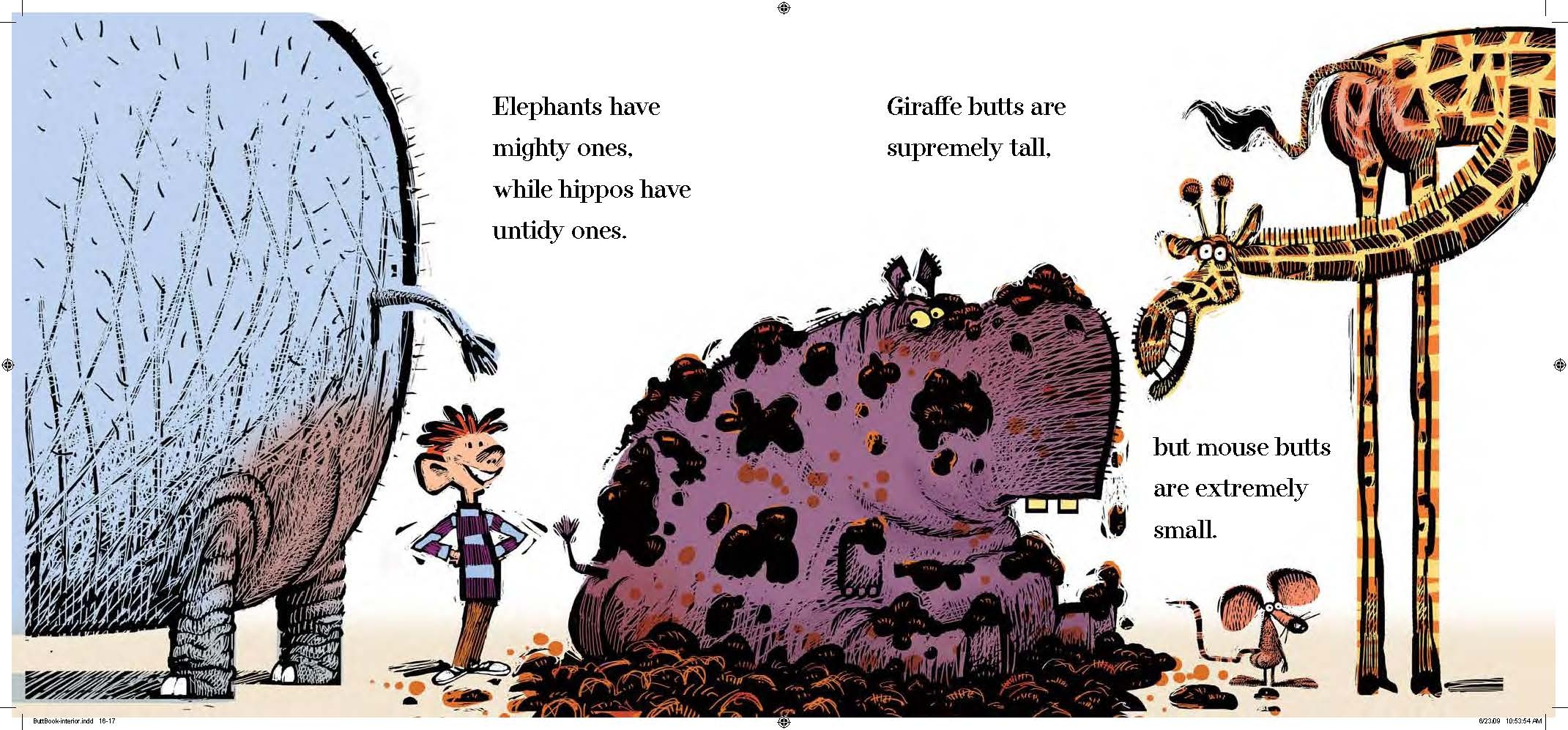
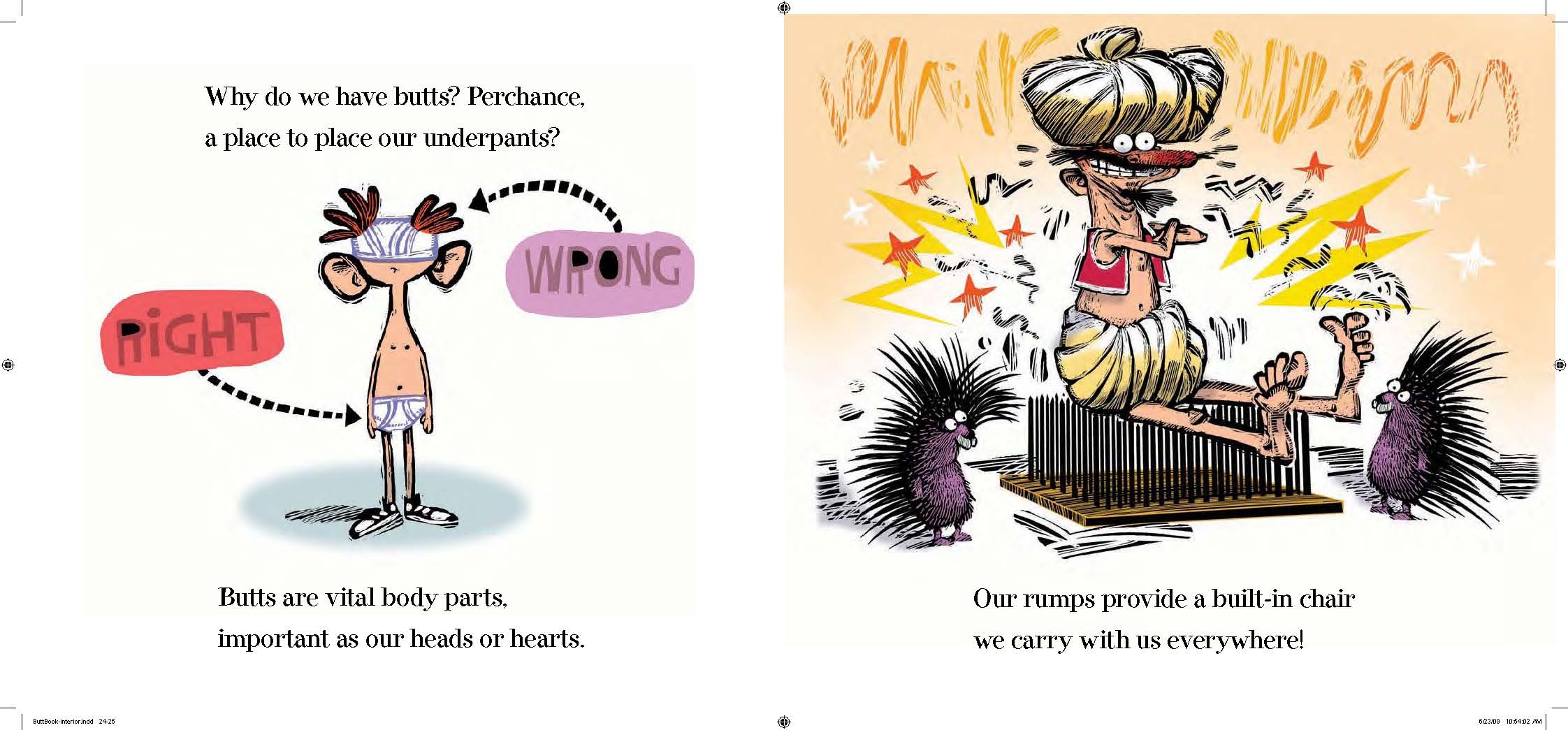
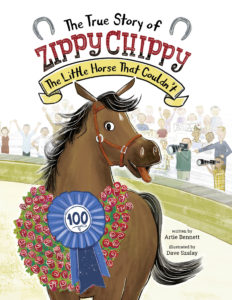

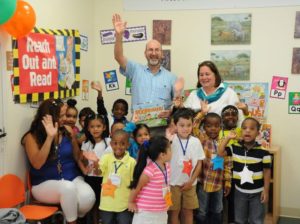
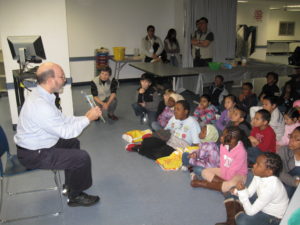
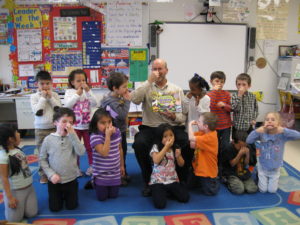

1 thought on “Author Guest Post: “A Man of My Word: How Wondrous Words and Wordplay Make Children’s Books Shine” by Artie Bennett, Author of The True Story of Zippy Chippy: The Little Horse That Couldn’t”